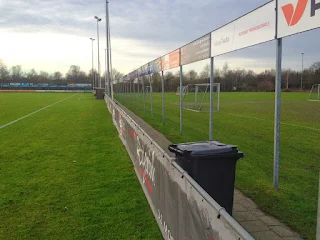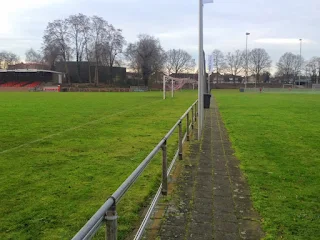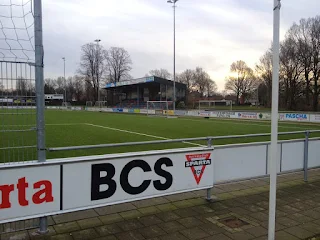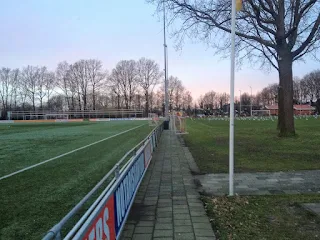HVV Tubantia (Hengelose Voetbal Vereniging Tubantia) is an amateur football club who were formed on the 1st October 1900 in the town of Hengelo in the north east of The Netherlands after initially being called Wilhelmina.
The club moved to a ground at Bornsestraat, midway between Hengelo and Borne in 1905 after starting life in Tweede Klasse football. The team was successful, being crowned as 2A champions in 1907-08, 1908-09 and 1910-11 before another title win in 2011-12 was rewarded with promotion.
Tubantia were placed in Eerste Klasse Oost, one of divisions at the top level of Dutch football of the time of which they finished runners-up in 1913-14 and then again in 1919-20 before the side was relegated the following season.
Back in Tweede Klasse 2A Tubantia were crowned as champions in 1925-26 with the runners-up spot coming twelve months later. The title returned in 1927-28 which saw the club return to the top tier.
At this point Eerste Klasse was divided into five and then six regional sections, with the winner of each playing in a group to decide the Dutch national champions. Tubantia finished third in Eerste Klasse Oost in 1937-38 and 1940-41 prior to being relegated in 1946-47.
Back in Tweede Klasse 2A, Tubantia finished runners-up in 1947-48 before winning the title in 1949-50. Further second places arrived in 1950-51 and 1951-52 before the club entered a partnership with professional outfit Twente, while keeping the Tubantia name, but competing in professional football.
This came after the club had for several years developed and became an important social outlet to the people of the area. Tubantia became members of the third tier Tweede Divisie A at Stadion Veldwijk under coach Julius Huber.
Jan van Asten took over as coach the following season as the team was switched to the B section as Wim Perik scored the goals. Piet Huisken was the next coach as the club settled into the competition with mid table finishes.
Frans Olde Riekerink put away the goals in 1961-62 as the Tweede Divisie streamlined to one section before reverting to the previous system with Ben Tap in charge of the team. Bertus Starting was the top scorer in 1963-64 when Tunbantia finished in sixth place which was improved upon by one position the following season.
Piet de Wolf took over as coach in 1965 before being replaced by Wim de Bois with Jan Welles scoring the goals in the single division competition after which the club dropped down from professional football to revert to Sunday amateur status.
Tubantia had to start down at fourth amateur Vierde klasse, winning the 4A title at the first attempt before making it consecutive championships and promotion when 3A was won in 1969-70 before the team dropped back down twelve months later.
Runners-up places in Derde Klasse 3A followed in 1977-78 and 1980-81. The club suffered from decline over the years in membership, although they could still boast nine junior sides at the lowest point in 1981. As a consequence, the club made the decision to re-locate, opening a new base at Landmansweg in the north east of the town in 1983.
The move was celebrated when the title 3A was secured in 1984-85. The momentum was capitalised upon with the 2B title following in 1986-87 with Tubantia reaching Eerste klasse football, for one season. The relocation also saw a spike in membership numbers.
The side recovered to win 2B at the first attempt, but again the jump proved too much, ending in demotion twelve months later. Worse was to come in 1990-91 and 1991-92 with further relegations to leave the club back in Vierde klasse.
After a couple of second places Tubantia claimed the Vierde Klasse 4A title in the final season of the old millennium. The 3A championship was collected the following campaign before the team settled into Tweede Klasse 2J football with a runners-up place in 2001-02.
In their eighth season in the division Tubantia won the league in 2008-09 before lasting. In Eerste Klasse 1E until being relegated in 2011-12. The team recovered, finished second and then first in the 2J season of 2014-15 to go back up a level.
A new clubhouse and stand opened by the honorary president; Peter Leferink on Saturday 25th January 2014 assisted Tubantia to settle as a sixth tier Eerste Klasse 1E club. They were in eleventh place when the 2019-20 season was brought to a premature ending owing to the Coronavirus outbreak.
HVV Tubantia will play in Zondag Eerste Klasse 1E Oost in the 2020-21 season.
My visit


























































